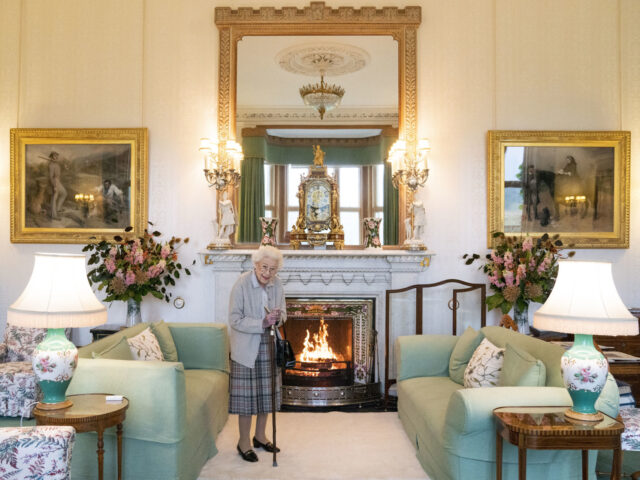Britain’s late Queen Elizabeth II “wanted to be a figurehead for white supremacy and reap all the rewards”, according to the country’s inaugural professor of “Black Studies”.
Kehinde Andrews, who has branded even the publicly-funded university which created his position institutionally racist, has carved out a niche for himself in Britain’s public discourse as the go-to source for the mainstream media when it needs someone to label some aspect of Western and especially British culture or history — the British flag, the English flag, the song Rule, Britannia, wartime prime minister Sir Winston Churchill, the Enlightenment, and so on — racist.
The activist-academic was perhaps never more energetic than in the days following the Queen’s death, penning articles for the likes of NBC News, Novara Media, and POLITICO and appearing on broadcasters such as MSNBC to denounce the deceased 96-year-old as a symbol of colonialism, racism, and/or white supremacy.
‘Rule Britannia’ is ‘Racist Propaganda’ Says Black Studies Professor Kehinde Andrews https://t.co/XdKhyTQNIh
— Breitbart London (@BreitbartLondon) August 24, 2020
“Although we saw her a lot I can’t remember anything she ever did so it’s fair to say the Queen was a figurehead and symbol,” said Andrews, rather cattily, in comments quoted by BirminghamLive, the major regional media outlet for the city hosting the university where he enjoys a sinecure.
“But then you think: what does that symbol represent? It represents white supremacy. It’s a celebration of colonial nostalgia and empire and she paraded stolen jewels,” the academic went on.
“She decided she wanted to be a figurehead for white supremacy and reap all the rewards so, of course, she’s culpable,” Andrews accused, citing in particular — as have many of the Queen’s leftist detractors — the suppression of the Mau Mau rebels in Kenya during the very first years of her reign.
Little mentioned by such commentators is the fact that the Mau Mau did not enjoy popular support in Kenya, and that they were not only the victims of abuses — usually by local black security forces — but also the perpetrators of horrendous atrocities, including hacking a white six-year-old, his parents, and a black farm worker to death with pangas and burning large numbers of black Kenyans who did not support them alive in their homes.
Indeed, Jomo Kenyatta, the first Kenyan president after decolonisation, publicly denounced the Mau Mau as a “disease which had been eradicated, and must never be remembered again” in the 1960s.
What is not in question is that what remained of the British Empire on the Queen’s accession to the throne in 1952 was all but dismantled by the time she passed away, with there being no question that the remaining British Overseas Territories with permanent populations, such as Gibraltar and the Falklands, retain their British status by overwhelming popular assent.
UK Black Studies Prof: 'America Is a Racist Project… Europe on Steroids' https://t.co/YwiZMZZXnG
— Breitbart London (@BreitbartLondon) May 2, 2021
“People forget she didn’t have to do any of it. She could have abdicated the throne, gone her way and lived a happy life,” Andrews argued.
The Queen did not see it this way, however, having viewed her role as monarch as a divinely ordained and lifelong duty.
“I declare before you all that my whole life, whether it be long or short, shall be devoted to your service and the service of our great imperial family to which we all belong,” the then-Princess Elizabeth had told her people during a radio broadcast in 1947, aged just 21 — a promise she would keep for over seven decades.
Nevertheless, Andrews insisted that the death of Chris Kaba, a black drill rapper not long out of prison for firearms offences who was shot by police in London after allegedly driving a car at them following a chase, “should be way more to society than the Queen’s death.”
Exclusive Video: 'We're Mourning OUR Kings and Queens' – BLM Protest Police Shooting of Rapper Yards from Queen's Memorial https://t.co/10h7w3dNjQ
— Breitbart London (@BreitbartLondon) September 18, 2022

COMMENTS
Please let us know if you're having issues with commenting.